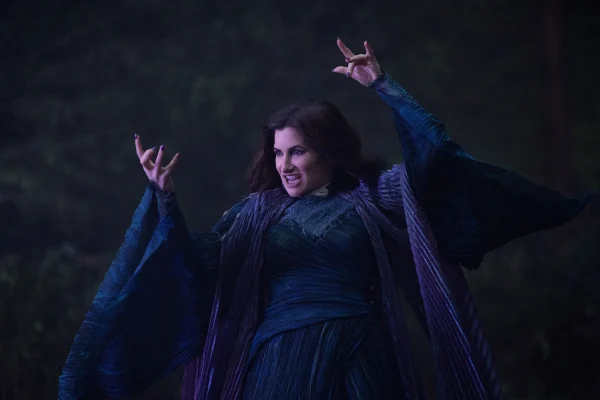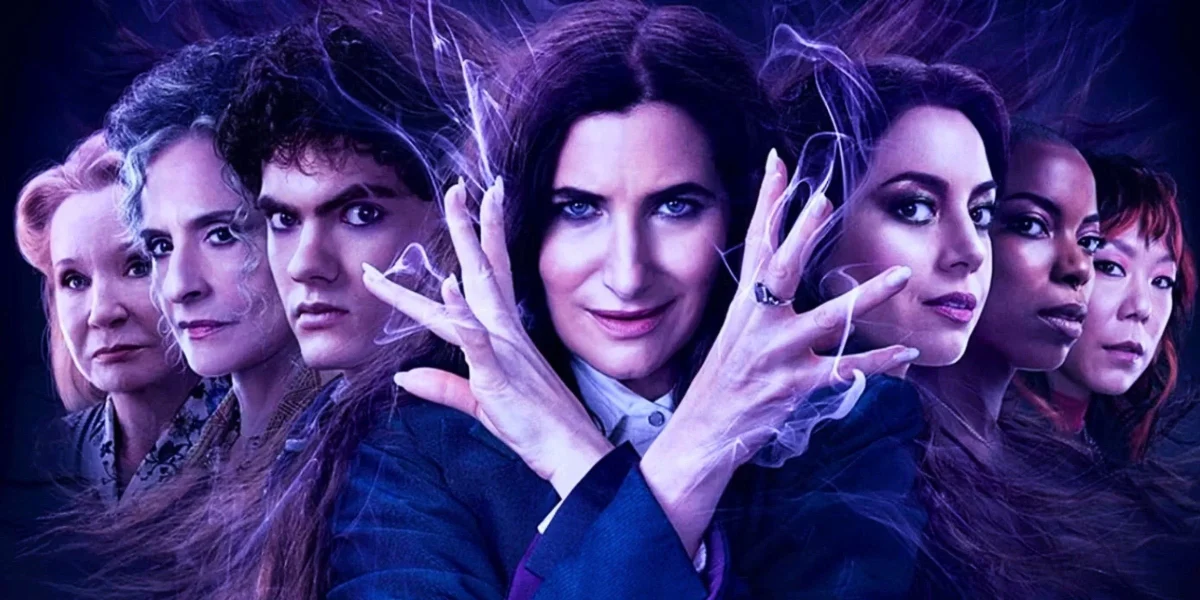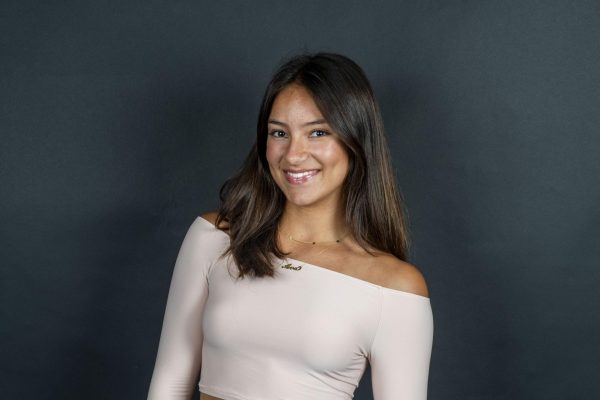It’s Spooky Season, the best time of the year. Most of my time is spent taking Spirit Halloween trips, carving pumpkins, and of course, doing a little Halloween binge-watching. To satisfy Halloween junkies like myself, Marvel released “Agatha All Along,” a spin-off show of Marvel’s “Wandavision” series, highlighting antagonist Agatha Harkness (Kathryn Hahn). As a “Wandavision” fan, I had high expectations for the new series and the eerie, Halloween vibe it emulates. However, I was quickly disappointed by the cheesy performances and cringey writing.
The series follows the all-powerful witch, Agatha Harkness–who is revealed to be the antagonist at the very end of “Wandavision”–as she breaks out into her trademark song, “Agatha All Along.” The story begins three years after the final episode of Wandavision, as Agatha finds herself trapped as a regular human, stripped by Wanda Maximoff (Elizabeth Olsen) of all of her witch power. Agatha panics to find a way to gain her magic back when she quickly realizes her solution: the Witches Road, a dimension that very few witches can access and even fewer survive. The Road supposedly grants the lucky witch(es) who survive it their deepest need, and with Agatha in need of her magic, she’s willing to take even the most severe measures. With the help of Agatha’s teenage stalker played by Joe Locke, she assembles a coven to travel the Road with, in attempts to seek the gifts that lie at the end of it.
Immediately, the show struck me as cringe-worthy. In “Wandavision,” Agatha’s character was dramatized to match the sitcom-esc vibe of the show, winning the audience through her comical lines, musical numbers, and her powerful performance during the big plot twist that reveals her villainous intentions. Hahn perfectly executes the quick switch from the classic, cheesy sitcom character, to a threatening evil-doer, making Agatha very popular amongst Marvel fans. The script went downhill for poor Agatha, which was unfortunate considering the fact that this was Hahn’s opportunity to once again showcase Agatha’s duality. Instead of Agatha appearing as the nefarious supervillain she was once made to be, her lines and mannerisms in the series were laughable–and not in a good way. It seems as though the writers’ goal was to make her appear as a fierce, powerful woman, but it came off as forced feminism with a side of wince-worthy lines that made the show hard to take seriously.

The same could go for most female characters in the series. While I’d hoped that all the witches would emit a tone comparable to the song “Season of the Witch” (the Lana Del Rey version, obviously), their lines felt so forced. I’m a massive Aubrey Plaza fan, who plays Rio Vidal, a fellow witch who’s introduced early in the show, and even her performance rubbed me the wrong way, as the lines given were hard to execute without sounding awkward. They stuck to corny witch cliches, which hurt the spooky, high stakes atmosphere the show was trying to build.
I will give credit to Agatha’s teenage stalker, who is yet to be named, because he kept me invested in the show. He is played by “Heartstoppers” star Joe Locke, who does a great job at capturing the youthful, comical quality in his character. He’s able to steer a little farther away from the required “Gen Z” appealing character that is randomly inserted into modern day television shows just for views, and makes the character seem authentically boyish and juvenile. The chemistry Locke’s character has with Agatha is perfect and the duo was hilarious, despite the fact that the material they were given wasn’t exactly top notch.
Without the corny writing and cliches used throughout the show, it could be considered a good plotline; It delivers with its eeriness and mystery, but those aspects of the series are quickly, and unfortunately overshadowed by Marvel’s poor attempts to incorporate humor and more obvious entertainment factors. If they’d left it alone, the plot would have spoken for itself, giving the fans the scary, binge-worthy series that it was marketed as. In all, I didn’t find the series all too exciting, a huge let-down considering the positive uproar Agatha caused in her role in “Wandavision.” The writers’ constant use of cheap lines and stereotypes dampens the sparkle Agatha once had, ruining the potential the show had to highlight Agatha’s character. In future, Marvel should invest in writers who care less about appealing to the Gen Z audience for the profit, and think more about portraying their characters authentically, like they did with Agatha prior to her internet fame. So was it “Agatha All Along” or was it really “Agatha All A-Wrong?”




